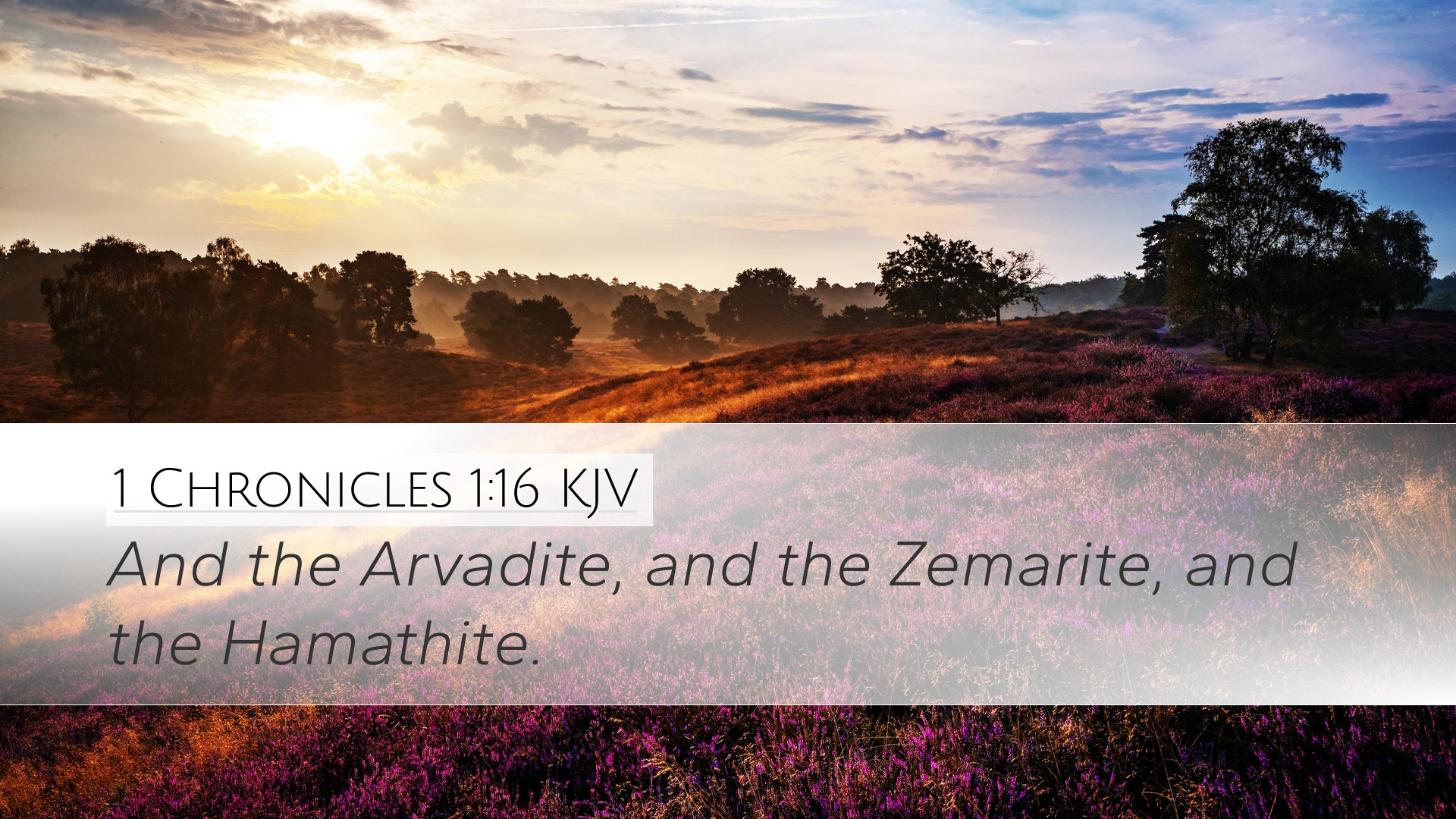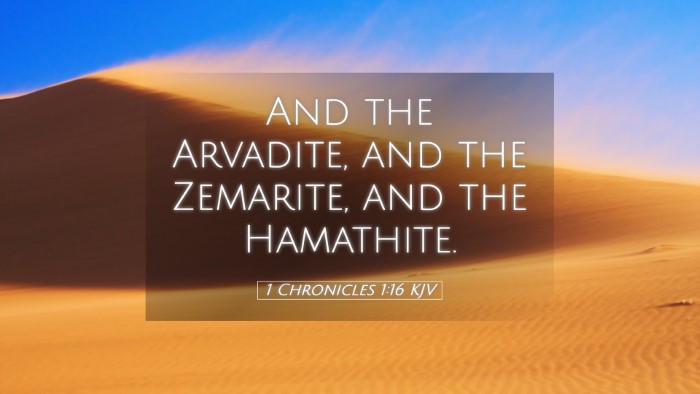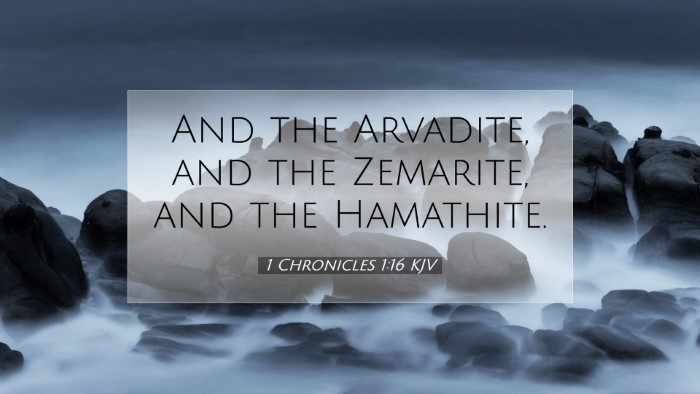Commentary on 1 Chronicles 1:16
1 Chronicles 1:16 states: "The sons of Midian: Ephah, Epher, Hanoch, Abidah, and Eldah. All these were the children of Keturah." This verse links back to the descendants of Abraham and highlights the significance of Keturah, Abraham's concubine, and her children, who are integral to the genealogical narrative.
Genealogy and Its Importance
The genealogical records found in Chronicles are vital for understanding the heritage of Israel. The mention of Midian and the children of Keturah illuminates the broader family context of Abraham, demonstrating how God’s promises extended beyond Isaac and Jacob.
Insights from Matthew Henry
Matthew Henry observes that this passage serves to establish the lineage established from Abraham through his concubine Keturah. He suggests that Keturah is often referred to as a secondary figure in contrast to Sarah, who bore Isaac. Nonetheless, the descendants of Keturah represent God’s providential care and preparation for the nations that would emerge from Abraham's line.
Insights from Albert Barnes
Albert Barnes emphasizes the significance of Midian as a group of people derived from Abraham’s union with Keturah. He points to the historical interactions between Israel and Midianites, particularly noting that while Midianites were descendants of Abraham, their destinies diverged significantly from the Israelites. Barnes highlights the theological implications of these relationships and how they reflect God's overarching sovereign plan through genealogy.
Insights from Adam Clarke
Adam Clarke goes further to analyze the names listed in this verse. He notes that each of these names carries meaning and significance, often reflecting the traits or destinies of the tribes descending from them. Clarke illustrates how Ephah, Epher, and the others may have had roles in the economic and social structure of their time, especially in relation to trade and pastoral life, with Midian eventually becoming known for its merchants and trade routes. Clarke draws attention to the importance of historical context and cultural implications tied to these genealogies.
The Role of Keturah’s Sons in Biblical History
The mention of Keturah’s sons opens doors to understanding the complexities of Biblical relations among nations. While Israel often faced animosity from neighboring tribes, the origin point through Keturah’s sons can remind readers of shared ancestry and the covenantal legacy of Abraham.
Lessons for Pastors and Theologians
- Understanding Heritage: This passage allows for reflection on how spiritual heritage shapes identity within the church today.
- God’s Generosity in Covenant: God's promise to bless many nations through Abraham is evident, challenging the notion of exclusivity in God's promises.
- Interconnectedness of Families: The complex family dynamics underscore the nature of God's plan working through and despite human choices.
Application to Contemporary Faith
The narrative exemplified in this genealogical record provides a platform for believers today to realize the value of family lineage in understanding the present and future role of faith communities. Just as the Israelites were reminded of their roots, modern believers must also remember their origins and how God has been faithful through the generations.
Reflection for Students and Scholars
1 Chronicles 1:16 challenges students of scripture to delve deeper into the historical and cultural contexts of Biblical texts. It encourages a thorough investigation of the implications of these genealogical records not only in theology but also in historical methodology, revealing patterns of interactions among ancient peoples.
Conclusion
In summary, 1 Chronicles 1:16 encapsulates the complexity of genealogical records and their significance in the Biblical narrative. As highlighted by noted commentators, each name and lineage carries weight in the unfolding story of God’s people, reinforcing the idea that all nations are part of God's redemptive plan through Abraham. This encourages believers today to delve into their spiritual heritage and the unfolding narrative of God’s grace through all families, tribes, and nations.


